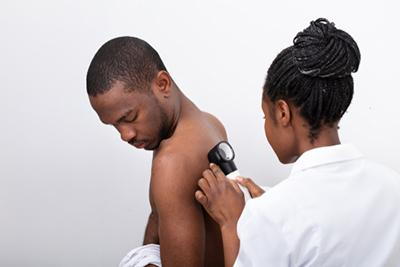
Your skin is your body’s largest organ and serves as the first line of defense against the environment. Despite this, skin health is often overlooked until issues arise. Regular skin checks are essential for maintaining healthy skin and catching potential problems early, particularly skin cancer. When issues are detected early, they are typically easier to treat and deal with. You mustn’t underestimate the importance of skin checks for detecting and preventing serious skin complications.
Protecting Your Skin With Skin Checks
Skin cancer is the most common type of cancer, but it is also one of the most treatable when caught early. Regular skin checks can help detect the three main types of skin cancer: basal cell carcinoma, squamous cell carcinoma, and melanoma. Melanoma, in particular, is aggressive and can spread quickly, but it is highly curable when detected in its early stages. Conducting regular self-examinations and seeing a dermatologist for professional skin checks can help identify suspicious moles, growths, or changes in your skin that may indicate cancer.
Our skin constantly changes due to aging, sun exposure, and other factors. By performing regular skin checks, you become familiar with your skin’s appearance, making it easier to notice changes over time. Look for new moles, growths, or changes in existing spots, such as size, color, shape, or texture. If you notice anything unusual, it’s important to consult a dermatologist promptly.
While regular skin checks are often focused on skin cancer, they can also help identify non-cancerous skin conditions that may need attention. Conditions like psoriasis, eczema, and dermatitis can be effectively managed with early diagnosis and treatment. Additionally, early detection of precancerous lesions, such as actinic keratosis, can prevent them from developing into skin cancer.
Regular skin checks allow for early intervention, reducing the risk of advanced or complicated skin issues. For instance, detecting and treating a suspicious mole early can prevent it from becoming malignant or spreading to other body parts. Similarly, addressing other skin conditions early can prevent them from worsening and leading to complications.
Contact Our Dermatologist Today
Make sure you understand the importance of regular skin checks. Contact your dermatologist to schedule your appointment today.
